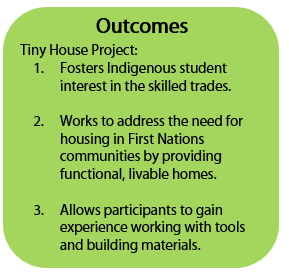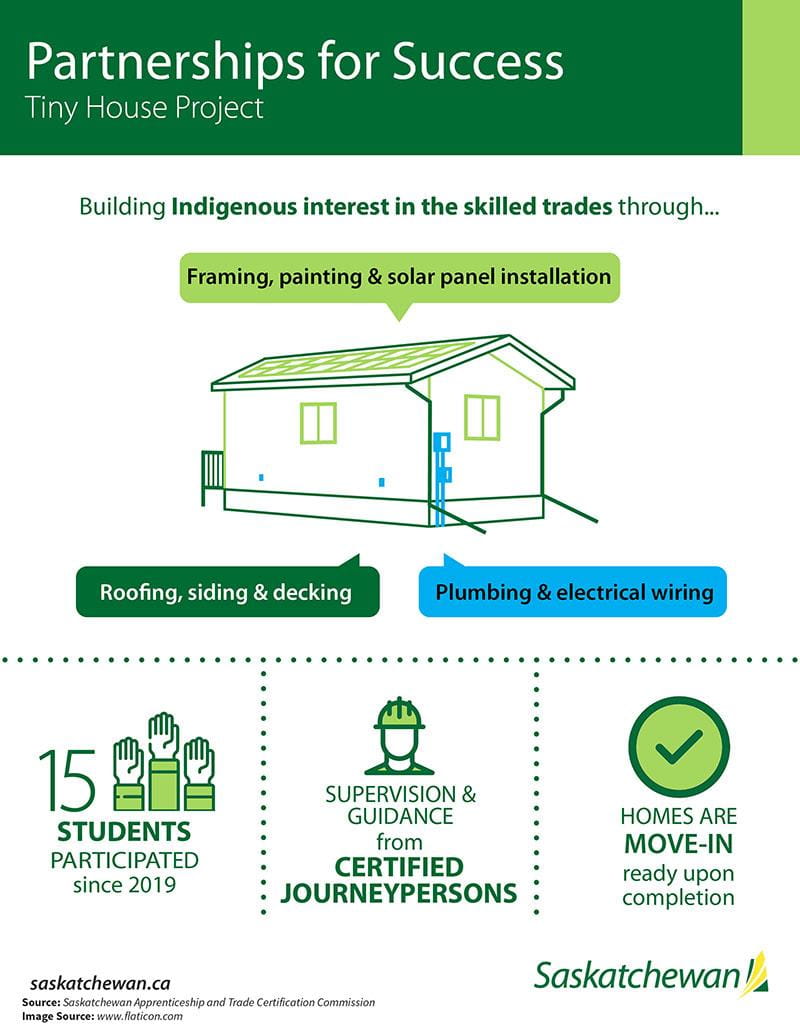In 2019, the Saskatchewan Apprenticeship and Trade Certification Commission (SATCC) launched the Tiny House Project, a program which gives Indigenous students the opportunity to build a finished, fully functioning home over a period of five months. Through the Indigenous Apprenticeship Initiatives Program, which provides funding to support the recruitment of Indigenous people into apprenticeship and the skilled trades, the SATCC partnered with Parkland College, Indigenous Services Canada and several tribal councils to help participants learn invaluable career-building skills.

In January of 2019, seven students from Cote First Nation began the program by learning new skills, participating in power tool training, and working on smaller projects. By March, the students broke ground on what would become the first home built through the program. Tasks focused on learning the skills necessary to build a working and environmentally conscious home. With supervision from certified journeypersons, framing, plumbing, painting and electrical wiring, as well as the installation of siding, roofing, flooring, cabinets and solar panels were completed for the Tiny House.
Throughout the project, these students learned directly from experienced tradespeople, and supervisors and saw first-hand what a career in the trades can offer. The program will also help address the need for housing in First Nations communities, as each will be fully equipped and move-in ready upon completion. This first and only house built so far, was awarded to Elder Gloria Pelley of Cote First Nation.
Partners involved in the Tiny House Project include:
- SATCC
- Parkland College
- Indigenous Services Canada
- Yorkton Tribal Council
- Cote First Nation
- Ocean Man First Nation
The Tiny House Project has been successful in helping open the door to the skilled trades as a potential career path for Indigenous students. Future projects will expand to include more students, and reach out to other First Nation communities as partners. The next scheduled project will be built in partnership with Ocean Man First Nation.
For more information, visit saskapprenticeship.ca.

